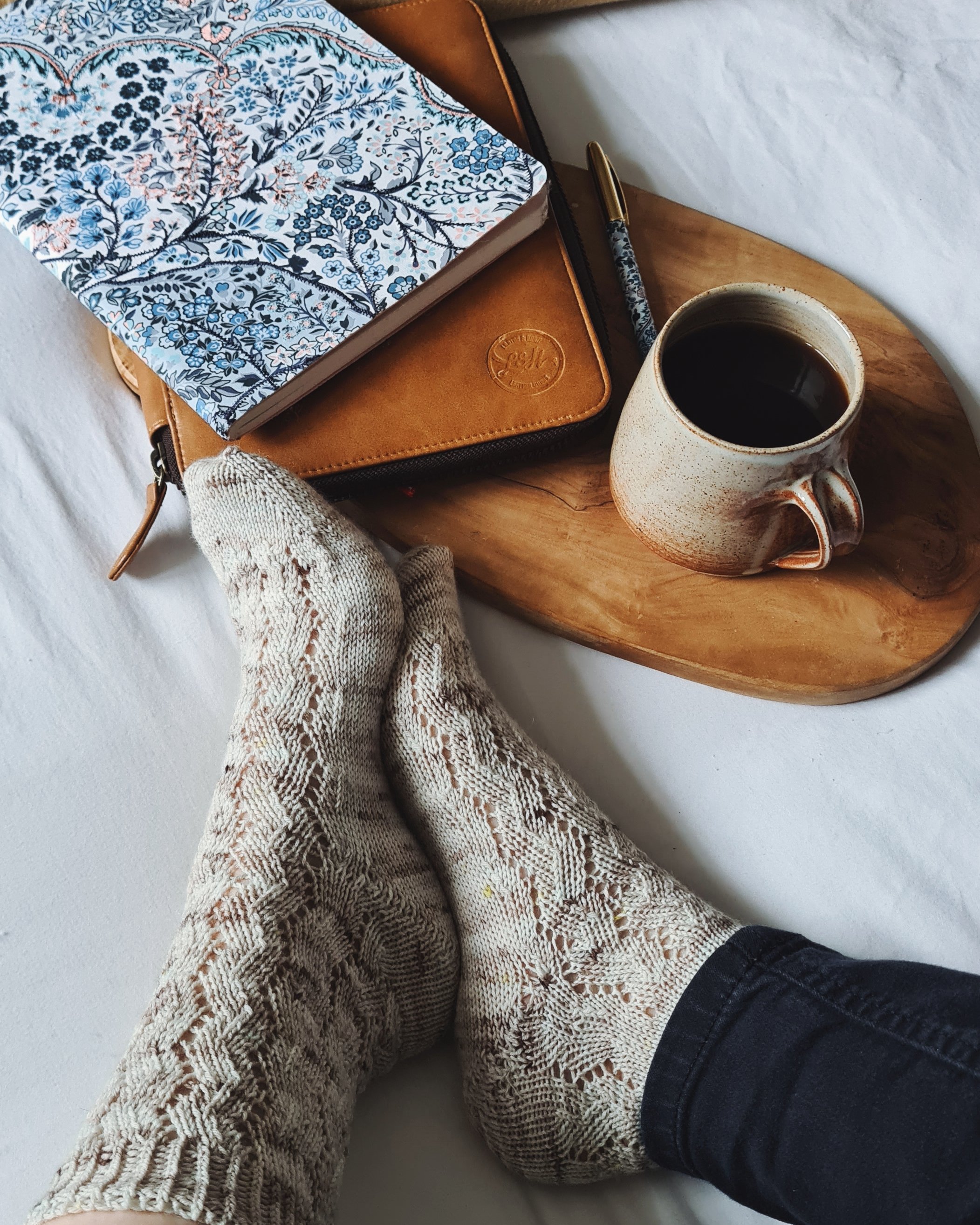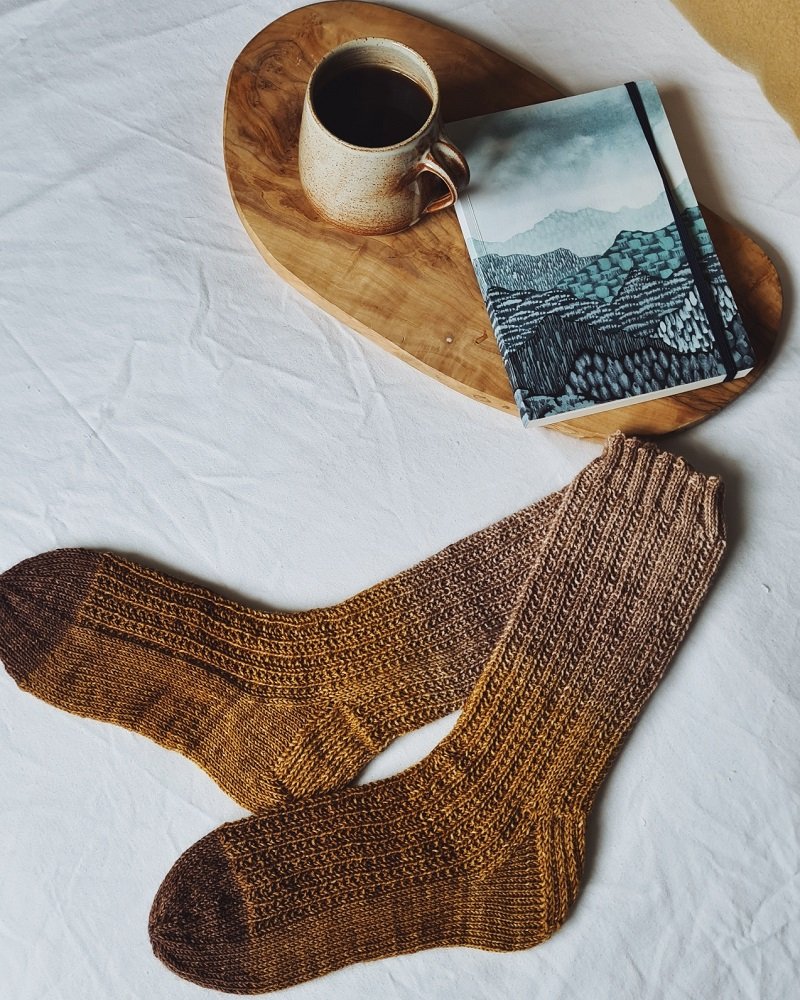A pair of handknit socks knit in yarn from The Yarny Octopus
A lot of time and effort goes into knitting a pair of handknit socks. By my conservative estimate I normally reckon on around 8 hours per sock, if it’s a plain vanilla sock with a short row heel. Larger socks for the men in my life or anything requiring a pattern or cable can be upwards of 10hrs - a total of 20hrs for a pair.
Whatever way you look at it - that’s a lot of time invested in two small woolly object. So naturally it makes sense to want them to last as long as possible, no one wants to have sock holes to deal with.
Socks in general have a hard life, unless you are knitting cashmere bed socks. Stuffed into boots and shoes, subject to a lot of friction, it’s no surprise that they can suffer from wear and tear. But there are a few simple things we can do to help them last longer.
Choose a choose wool/nylon mix. Ideally 80% wool/20% nylon or 75/25. Yes, I know that you can knit long lasting socks with just 100% wool but in my experience a little bit of nylon really does help.
Choose a yarn with multiple plies firmly twisted around each other.. Some brands sell a high twist yarn which is perfect for fabrics which will get a lot of friction and rubbing. Avoid anything that pills as this will inevitably lead to thinner areas developing on the sock - and holes forming.
Avoid putting handknit socks in the tumble dryer. The excess heat can damage the fibres and reduce the amount of stretch in the yarn.
Go down a needle size. The ideal sock fabric should be firm with no gaps between the stitches. I noticed an immediate difference in my socks longevity when I went down from a 2.5mm needle to a 2.25mm needle. The fabric is firmer, more even and definitely longer lasting.
For someone who is very hard on their socks consider adding in a re-inforcement thread at heels and/or toes. You can buy commercial thread for this purpose or you can add in a strand of thin mohair or silk. Both will have the advantage of adding strength and durability to any vulnerable areas and hopefully increasing the socks lifespan.









